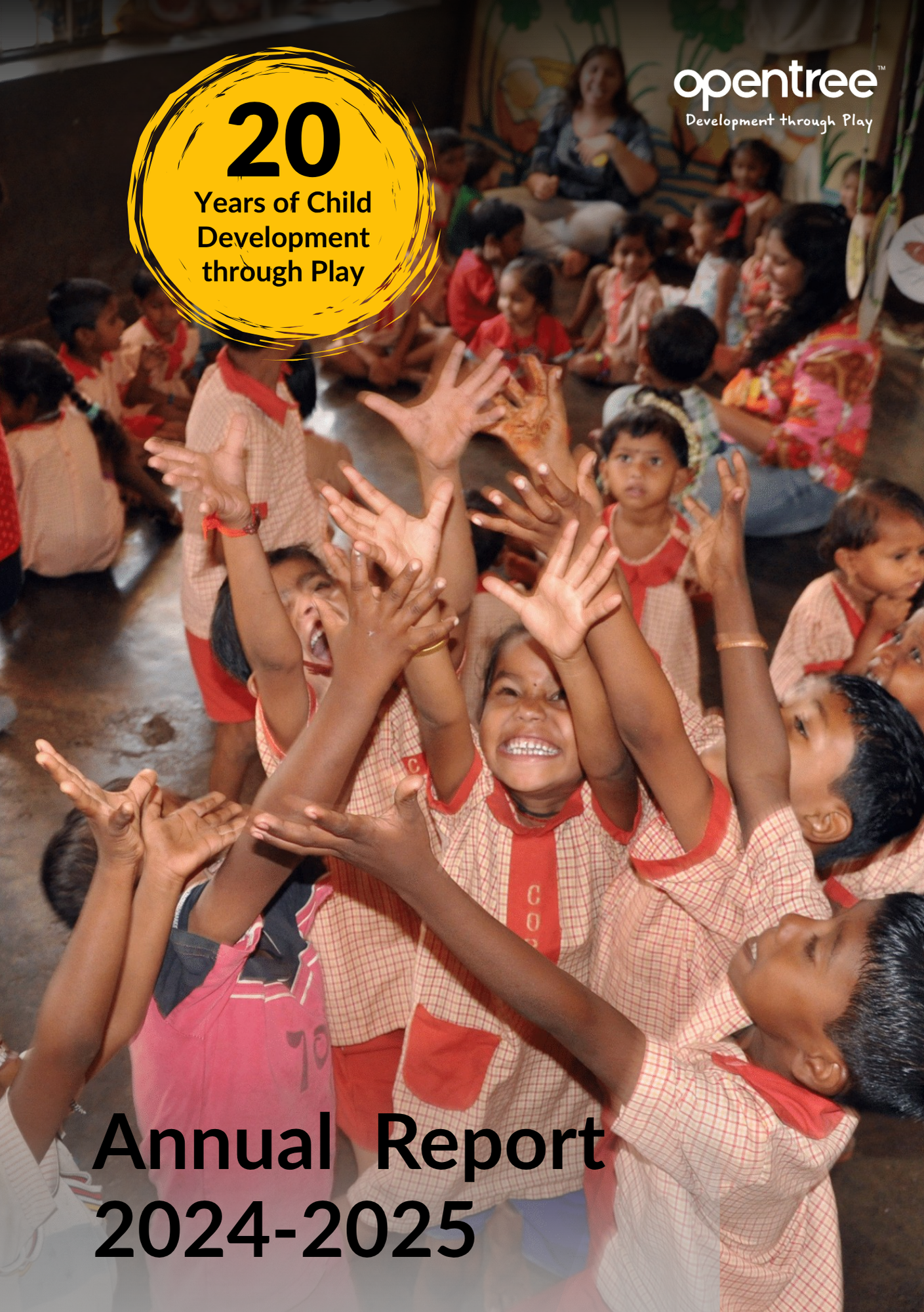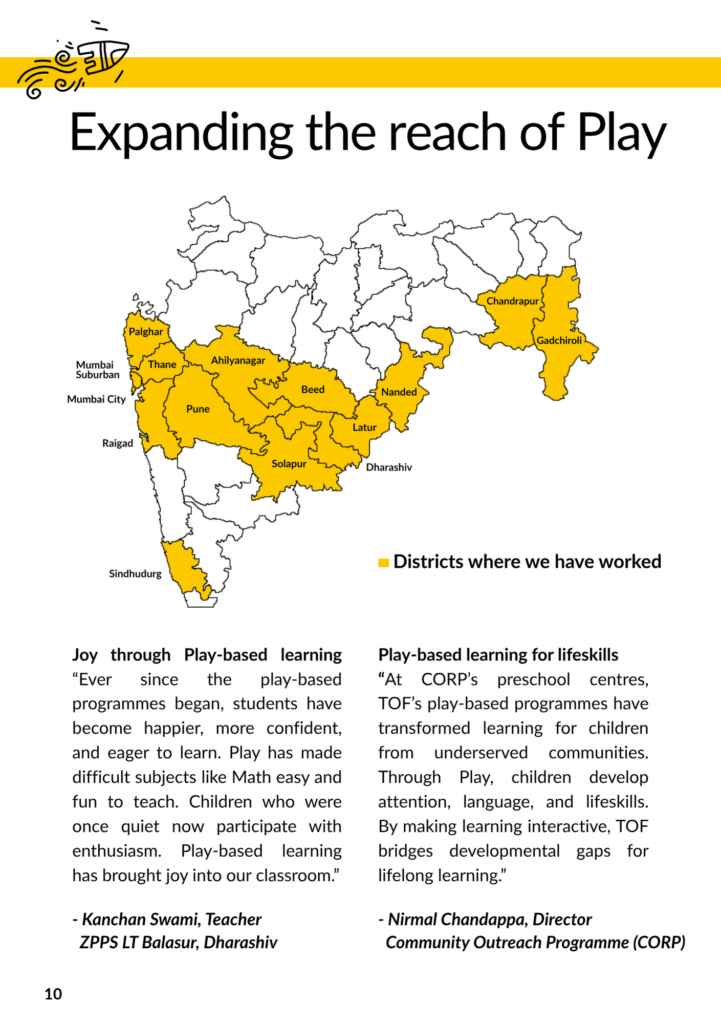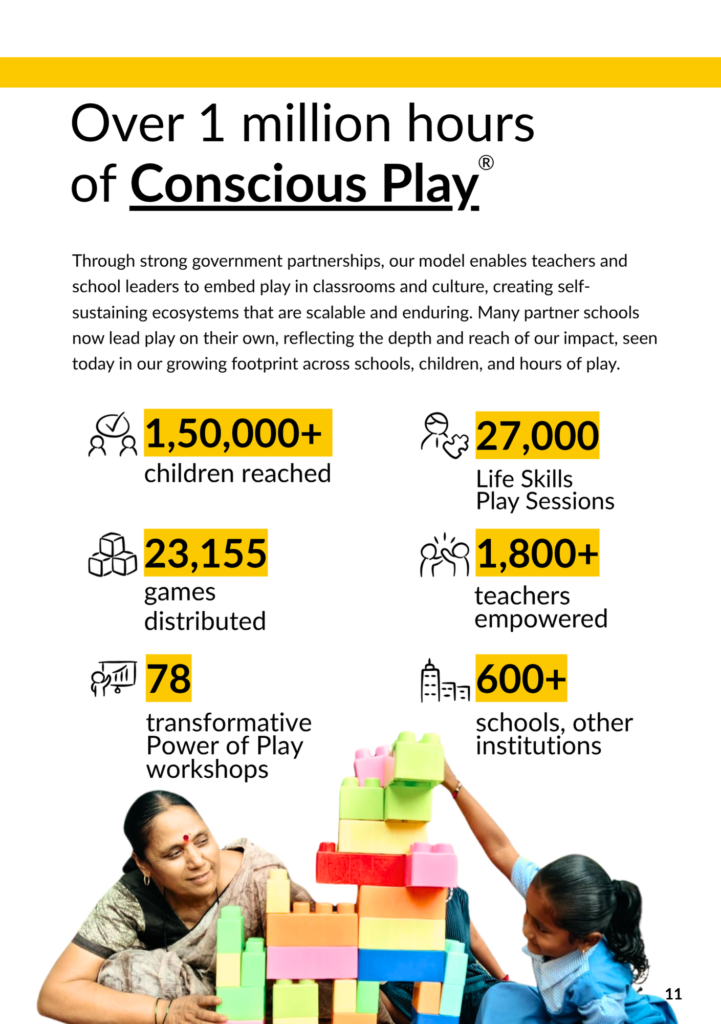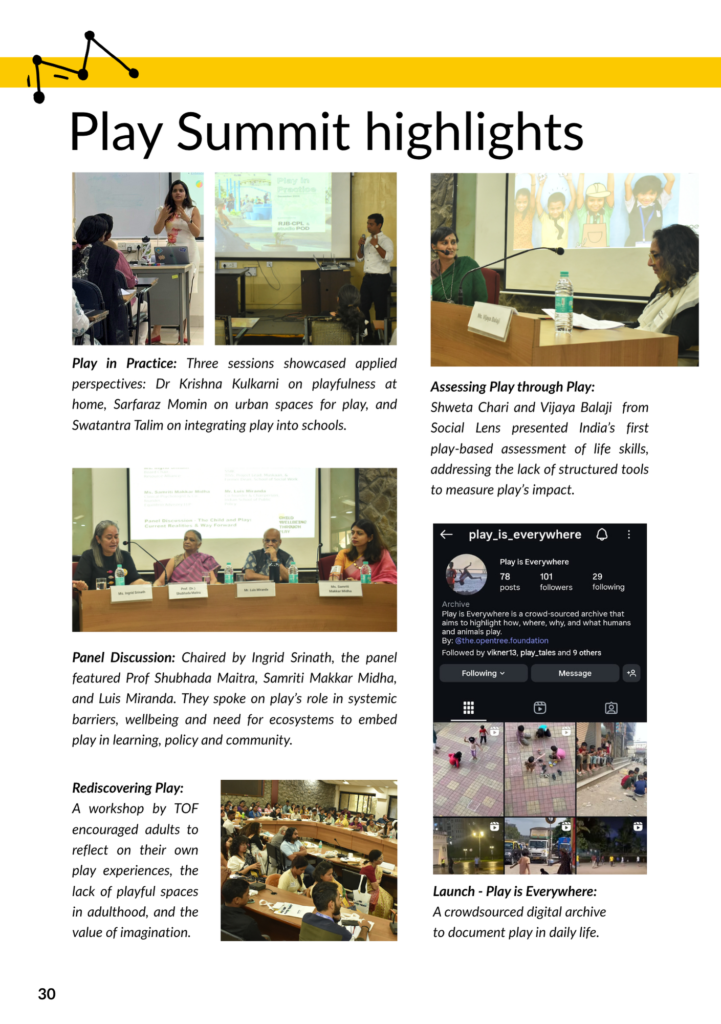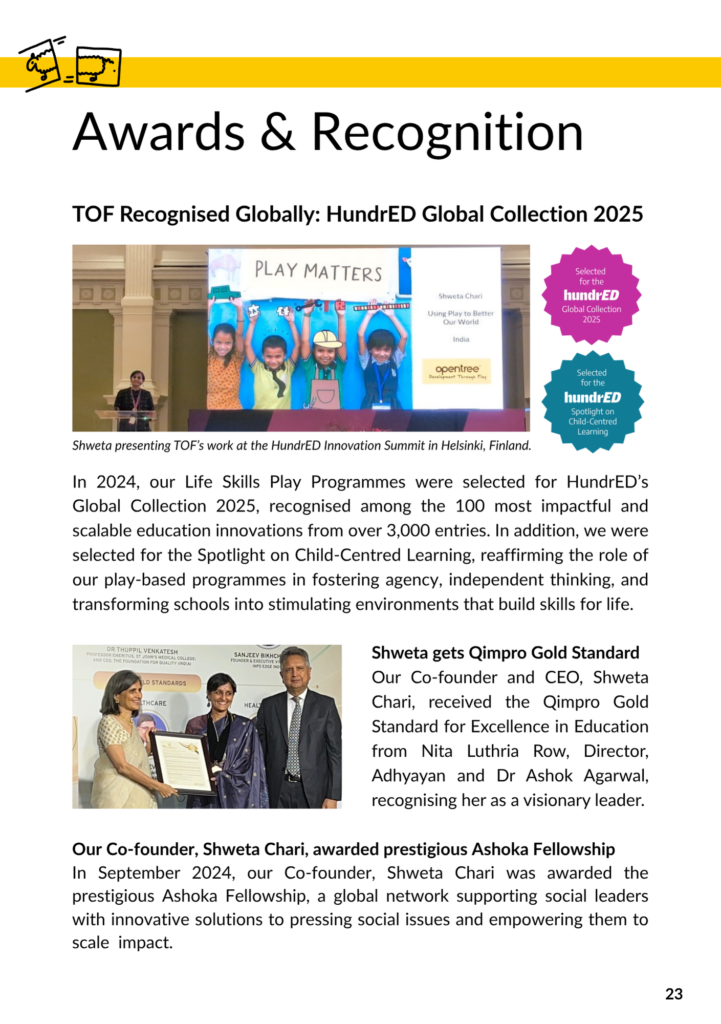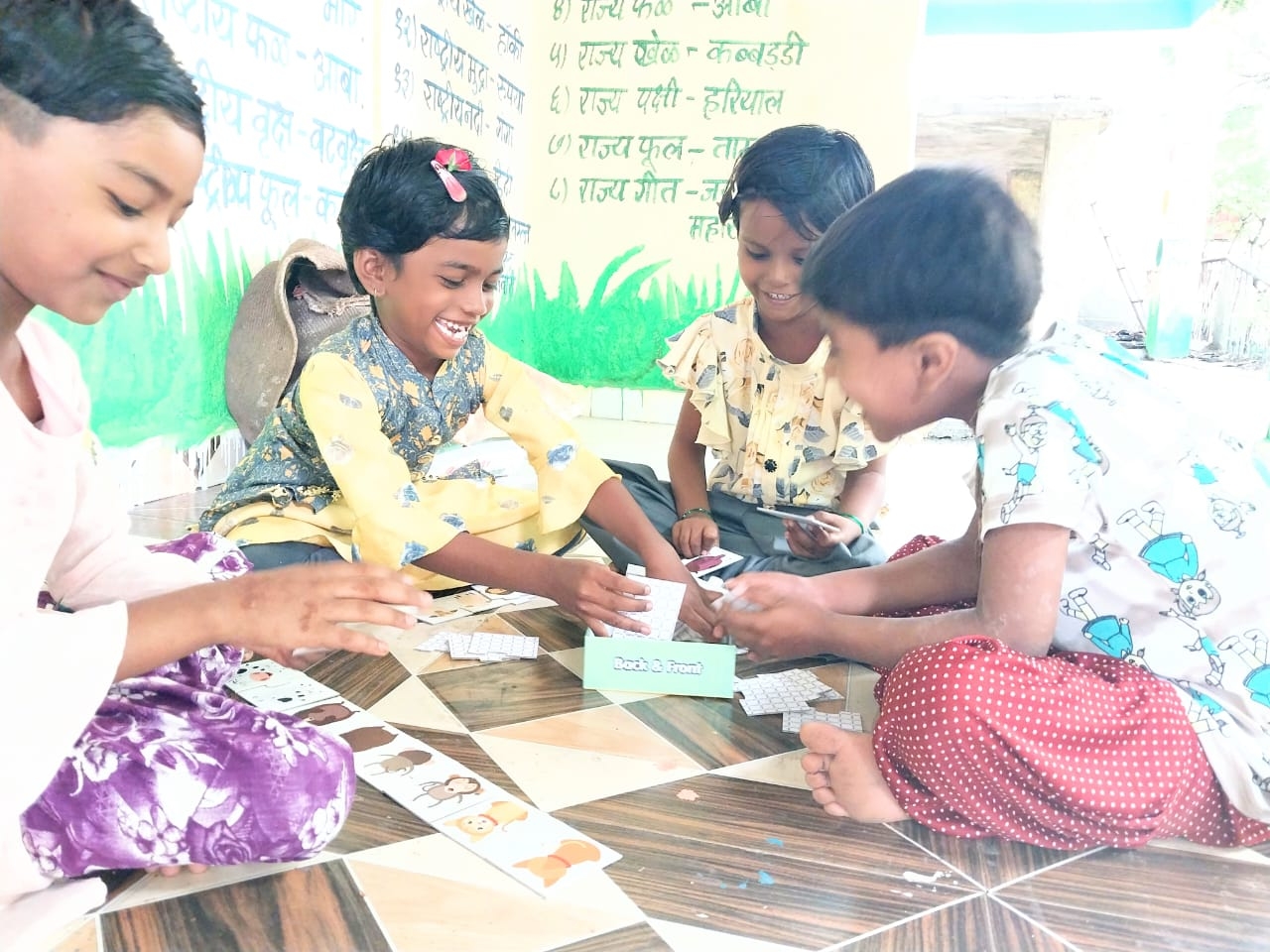Tag: empowering children
The invisible stress children face in urban India, and how play helps
“Tss-tss- tss-pshhhh” — a long whistle from the pressure cooker next door breaks the silence at dawn. In a one-room apartment, a child wakes and folds away the cloth they slept on so the kitchen can be set up. Outside, rickshaws honk and vendors call out prices. After a hurried breakfast, the walk to school begins, the bag on their back almost as heavy as they are. But even when the school bell rings at the end of the day, their work isn’t over. There are groceries to buy, siblings to look after, a house to clean. At just 10-years-old, their hours are filled with chaos, rush, and responsibility.
This isn’t unusual. For millions of children growing up in India’s cities, this is everyday life. Homes are crowded, streets are noisy, and schedules are relentless. Children carry not only books and chores but also invisible burdens: of stress, of expectations, of too little space to simply be.
Over time, this constant pressure shapes how children see themselves and the world. Some grow restless or withdrawn, others anxious or angry. What often gets overlooked is that beneath all this, every child still longs for something very simple: the chance to play and just be a child.
Play is often mistaken as “extra”, something that comes after studies or chores, if there’s time. But play is how children learn best. When they build, imagine, and role-play, they are also problem-solving, collaborating, and discovering themselves. For children in marginalised communities, who often lack safe spaces and supportive environments, play becomes even more critical. It is the one moment where their ideas and voices take centre stage, where they can lead, take risks, and experience the joy of success without fear of failure.
This is why play and play-based learning matters. Counting marbles can build numeracy, a round of carrom can teach patience, role-play can unlock language, and a puzzle can strengthen focus and resilience. For children who struggle with rigid, rote-based schooling, play opens a door back into learning. It turns fear of failure into curiosity, and disengagement into active participation.
The Opentree Foundation brings Conscious Play® into classrooms and communities where play is missing. Their Life Skills Play Programmes are not just about games, they are carefully curated spaces where children feel safe, supported, and encouraged. Volunteers like me and teachers guide children through games and activities that build both life skills and emotional wellbeing. Over time, we see children not only laughing and playing, but also showing more confidence in school, stronger friendships, and healthier ways of coping with stress.
I remember this one child would always sit in the corner, arms folded, refusing to join. Week after week, we kept inviting him in. One day, he quietly picked up a puzzle. By the end of the session, he wasn’t just playing, he was showing others how to solve it. That small shift says everything about the power of play.
I’ve seen it myself. One mischievous boy resisted for weeks, until we found the game that lit him up. Suddenly, he was laughing, engaging, even teaching others. At first, I used to watch the clock during sessions. Now, I dread the end, seeing the children’s faces fall when we pack up. That’s when I realised: what TOF offers is not just play. It is a relief. It is childhood, protected for just a little while longer.
In underserved communities, children often grow up faster than they should. Household chores, sibling care, and financial struggles leave little room for play. Schools too can be rigid, with their focus on exam results. By embedding play in these spaces, TOF ensures that children do not lose out on the joy and developmental benefits of play simply because of where they are born. Their work levels the playing field, giving every child, no matter their background, the right to play and learn.
Play is not a luxury. It is a lifeline. It gives children space to process big feelings, to connect with others, to imagine new possibilities. In cities that often ask children to grow up too soon, play lets them hold onto the magic of being young, if only for a while.
This article is written by our long-term student volunteer Rihan Shetty.
Art, Imagination, and Play: A Vibrant Day at Kala Ghoda Arts Festival 2025
“It was inspiring to see how freely they translated their thoughts into art, reminding me that imagination has no limits when given the right space to grow.”
– Grade 11 ABWA CAS volunteer
On January 29, 2025, we partnered with Aditya Birla World Academy (ABWA), to co-create a vibrant and inclusive play session at the Kala Ghoda Arts Festival. The collaboration brought together over 60 enthusiastic students from ABWA and 41 of children from The Opentree Foundation’s play centres, who celebrated the power of play, creativity, and connection. This wasn’t just an event — it was a reminder of how play can break down social barriers and empower every child to express themselves freely.

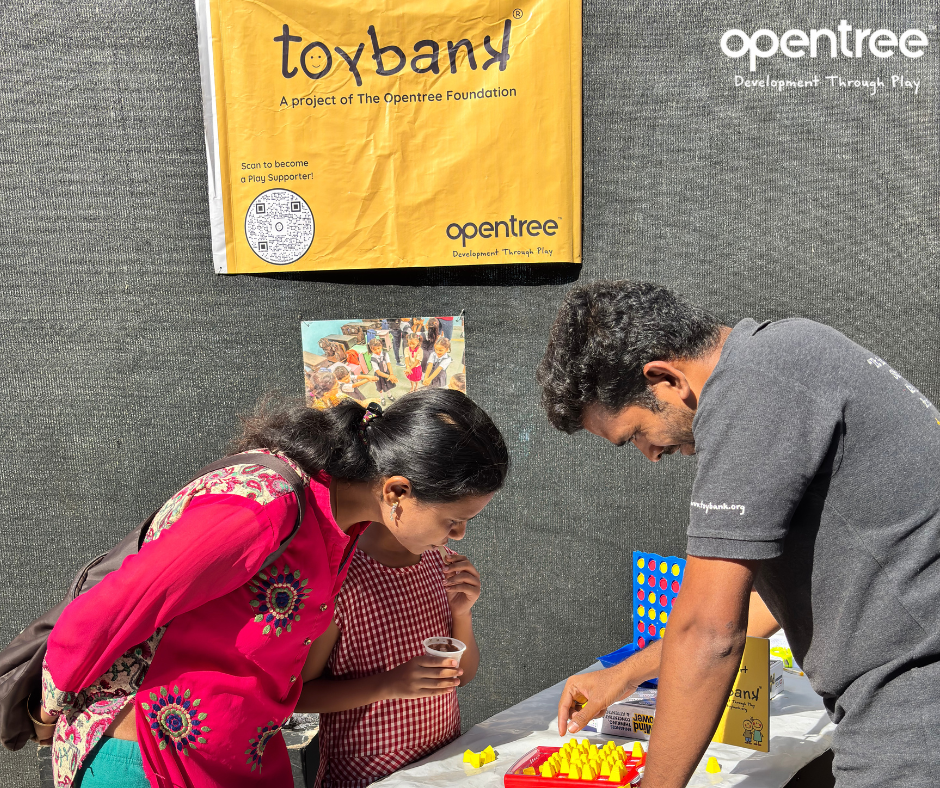
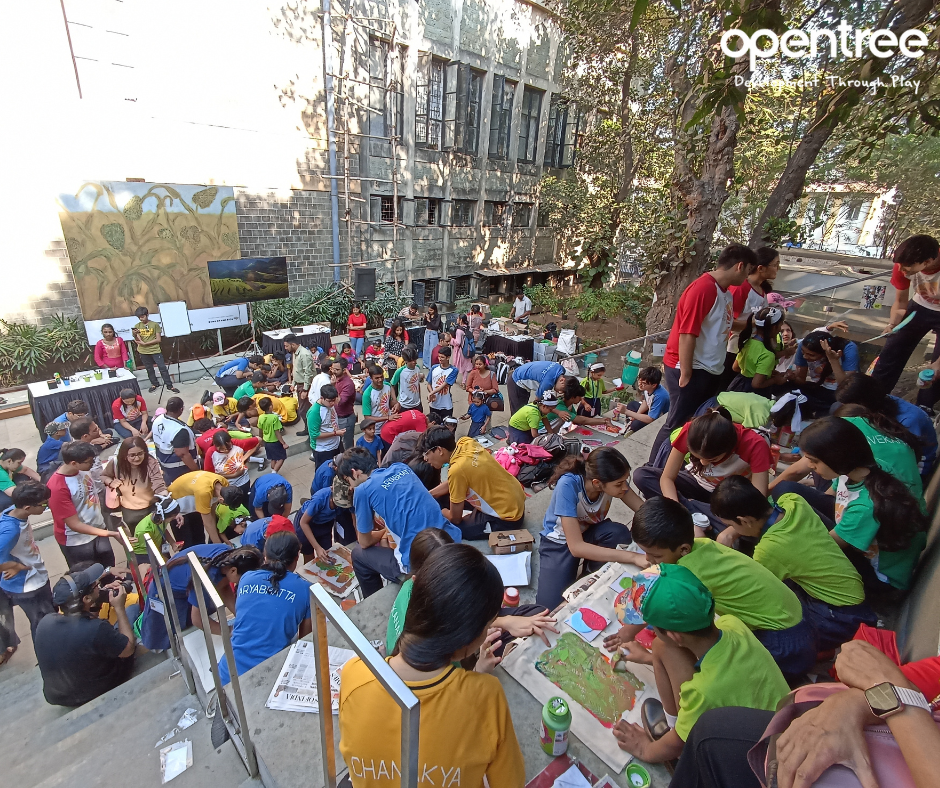
A Canvas of Creativity and Connection
The session was a colourful fusion of artistic exploration and joyful interaction. Children immersed themselves in:
- T-shirt and bag stencil painting – Letting their imaginations run wild, children designed unique pieces that reflected their inner worlds.
- Loose parts play – Using everyday materials like U-pins, paper cups, and clay, the children created their own ‘imaginary friends’ —characters born entirely out of creativity and personal interpretation.

These hands-on activities encouraged self-expression, problem-solving, and collaboration. Children weren’t just making art — they were communicating ideas, forming bonds, and stepping into each other’s imaginative universes.
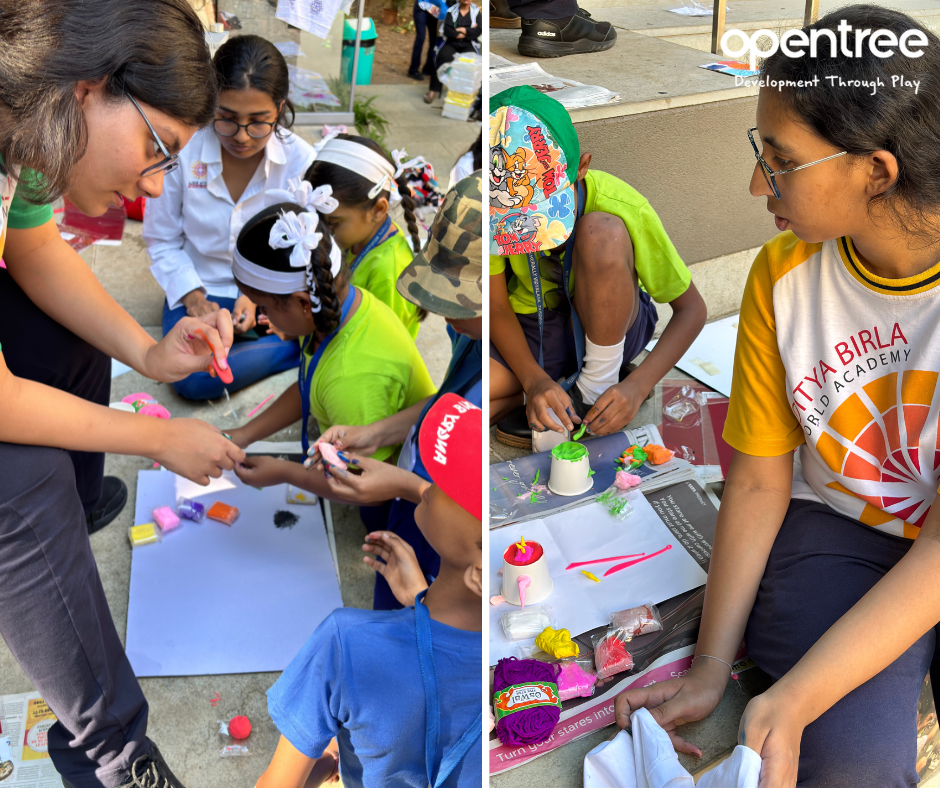
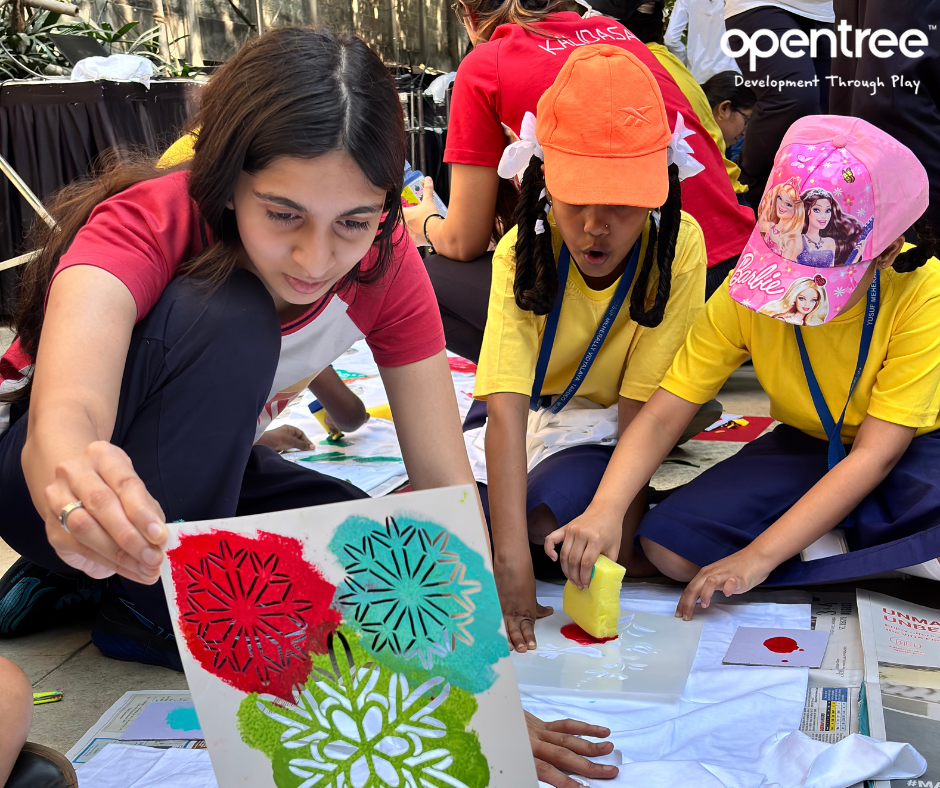
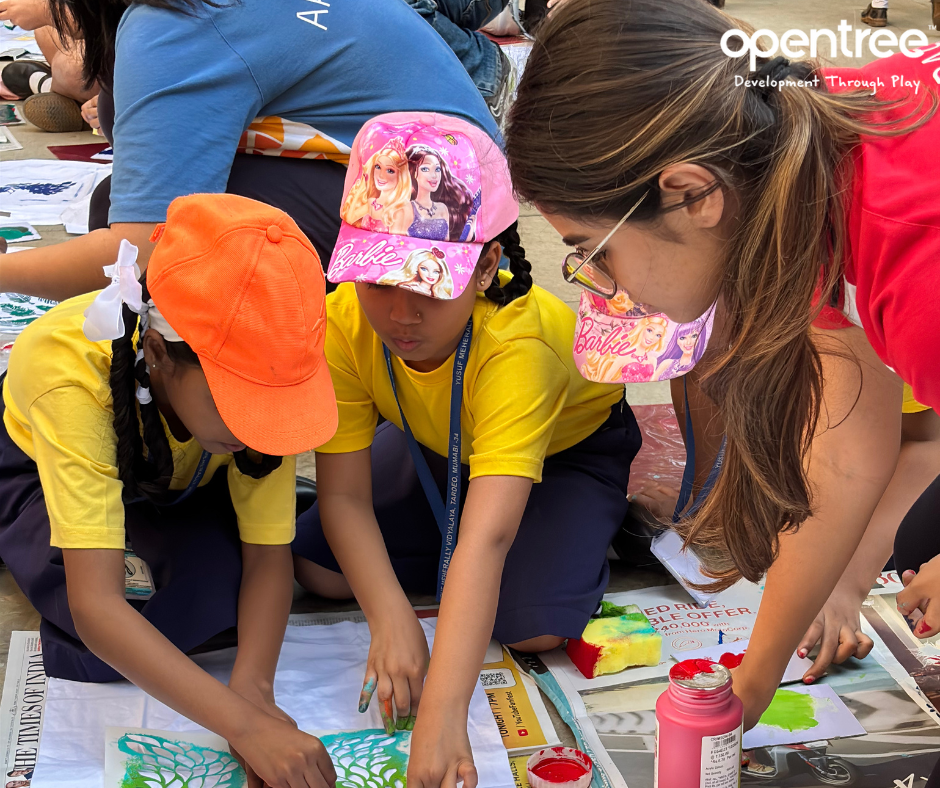
Play Beyond the Classroom
This session stood as a powerful testament to how unstructured play fosters critical life skills like creativity, empathy, critical thinking, and teamwork. Through shared experiences, children learned not only about themselves but about each other—celebrating differences, building confidence, and finding common ground through joyful engagement.
“Through this activity, I learned the importance of self-expression and creativity in a child’s development,” a Grade 11 ABWA CAS volunteer said. “It was inspiring to see how freely they translated their thoughts into art, reminding me that imagination has no limits when given the right space to grow.”

For the students of ABWA, it was a day of reflection and inspiration. For children from our play centres, it was a moment of recognition and freedom. And for us, it was yet another affirmation of the transformative power of play.









